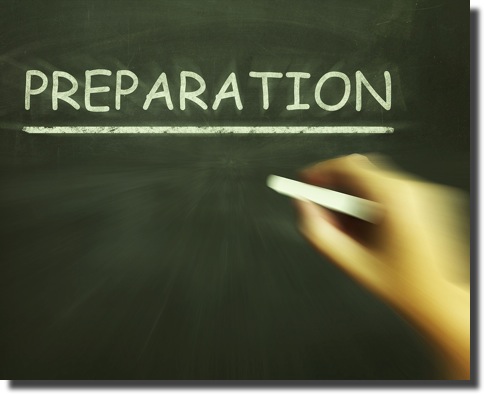 So you’ve decided to take the plunge and start taking guitar lessons. That’s awesome—an excellent guitar teacher will definitely speed up the process of becoming a better guitarist. 🙂
So you’ve decided to take the plunge and start taking guitar lessons. That’s awesome—an excellent guitar teacher will definitely speed up the process of becoming a better guitarist. 🙂
But before you even choose a guitar teacher, it’s important to do all the essential groundwork first. If you don’t do this, then you’ll be highly likely to run into these two major problems…
- You’ll find it much more difficult to choose a suitable guitar teacher.
- You’ll get less than optimal results from guitar lessons.
You might be asking yourself: “What exactly is the groundwork that I need to do?”. That’s a great question—so I thought it would be a good idea to spend the next couple of articles talking about what you need to do before starting lessons. Let’s get started right away…
Step 1: Define Your Areas Of Interest
The first thing you need to do is think about exactly where your general areas of interest are. To do this, you might find it helpful to ask yourself questions like…
- What styles of guitar playing am I most interested in learning?
- Out of those styles, which one am I most passionate about learning?
- What styles do I have absolutely no interest in learning?
As well as asking yourself these questions relating to styles of music, you can also ask yourself questions along these lines…
- Am I interested in learning to play cover songs?
- Am I interested in learning about improvisation?
- Would I like to learn about composition?
- Out of learning cover songs, improvisation, and composition, what am I most passionate about?
- Do I want to play in a band? If I do, then what sort of band would it be?
- Do I want to do gigs?
- Am I interested in learning how to record my own music?
- Am I more excited about improving my acoustic or electric guitar playing?
Step 2: Define Specific Skills You’d Like To Improve
Once you’ve taken the time to work out your general areas of interest, it’s really important to think about specific skills that you’d like to improve. Obviously, if you’re a total beginner then you’d skip this step. But if you’ve been playing guitar for at least a couple of years, then you’ll probably have a long laundry list of things you’d like to get better at. (I know I certainly do! 🙂 ).
To help you with this brainstorming process, you might it helpful to think in terms of these categories…
Technique
This category involves anything to do with the physical act of playing guitar. Although what you want to specifically improve will be unique to you, here are some common things that I’ve helped students with in the past…
- String bending.
- Using the tremolo bar.
- Arpeggiating chords.
- Changing between chords smoothly.
- Strumming.
- Palm muting.
- Left-hand muting.
- Pinch harmonics.
- Hybrid picking
- Sweep/economy picking.
- Tremolo picking.
- Alternate picking.
- Vibrato.
- Hammer-ons.
- Pull-offs.
- Tapping.
- Slides.
- Harmonics.
- Finger-rolls.
- Shifting positions quickly.
- Increasing speed.
- Improving the synchronization between the left and right hand.
- Playing in a more relaxed way.
- Getting rid of bad habits.
- Developing finger independence and accuracy.
Musicianship
This category involves musical skills that you’d like to improve. Like technique, there are a vast number of things that could be included in this category. Here are a few things that I’ve helped previous students with…
- Improving timing.
- Music reading.
- Becoming a more melodic lead guitarist.
- Developing pitch perception.
- Improving compositional and improvisational ability.
- Expanding music theory knowledge.
- Learning to play with other musicians.
- Improving musical memorisation ability.
Fretboard Knowledge
This category involves anything that expands your knowledge of the guitar fretboard, and includes things like…
- Note locations.
- Intervals.
- Chords.
- Arpeggios.
- Scales.
Repertoire and Vocabulary
This category involves expanding the musical things that you can play on the guitar, and will generally include things like…
- Specific cover songs that you want to learn.
- Learning to play songs that you’ve previously composed.
- Rhythmic motifs.
- Melodic motifs.
- Guitar licks and riffs.
Be As Specific As Possible
When you’re doing Step 2, try to be specific as possible. For Example: Let’s imagine that you want to improve your string bending technique. Rather than just writing down “string bending”, you would try to write down exactly what about your string bending technique that needs improving.
Step 3: Define Some Specific Frustrations That You Have
As well as thinking about what specific skills you’d like to improve, it’s very useful to have a think about frustrations you’re currently experiencing. Although this might seem like you’re just repeating Step 2, thinking about frustrations can lead to some new insights as to how a guitar teacher can help you.
While I obviously can’t tell you what you’re frustrated about, here are a few example frustrations that I’ve helped students to overcome…
- Playing that has been at the same level for years.
- Not learning in a structured way.
- Not knowing what to practice to get better.
- Getting nervous when playing with other musicians.
- Can’t keep fingers close to the string when playing scales.
- Playing the same stuff over and over.
- Feeling like they lack creativity.
This list is just a short sample, so when you think about your frustrations, try to be as thorough as possible.
Doesn’t This Take A Lot Of Time?
I’m guessing that more than a few guitarists will skip doing these steps because it’s time consuming. (If you do it very thoroughly, it’s not inconceivable that doing all three steps could take at least a few hours). But before you put it in the “too hard basket”, consider these three questions…
- If you’re unwilling to invest a few measly hours doing something that will help you get better results from guitar lessons, then what’s the likelihood that you’ll do the (significantly) larger amount of work needed to reach your musical goals?
- If you don’t know specifically what your wants are, then how will you choose a guitar teacher that’s a great fit for you?
- If you can’t communicate clearly to your guitar teacher what you want to get out of lessons, then how will they do lesson planning that caters to your wants?
A Few Last Words
That’s all for now. In the second instalment, we’ll going through a few more steps that will help you to get more value out of taking guitar lessons. But, until then, make sure that you do the steps outlined in this article— don’t be one of those passive students that takes no ownership of the learning process. You’ll thank yourself later! 🙂
Are You An Auckland Guitarist That Wants To Significantly Improve Your Electric Guitar Playing?
 If you're an Auckland guitarist wanting to improve your guitar playing, then my Auckland electric guitar lessons might be for you. I can help you to the develop technique, musicianship and mindset that will move you closer to how you truly want to play.
If you're an Auckland guitarist wanting to improve your guitar playing, then my Auckland electric guitar lessons might be for you. I can help you to the develop technique, musicianship and mindset that will move you closer to how you truly want to play.
To find out more about exactly how I can help you improve your playing, then download my latest Auckland guitar lessons info pack below...
